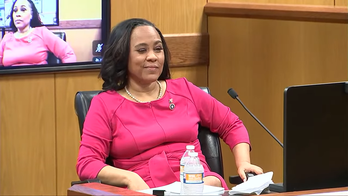“Taxes are going to go up one way or another, and I think the key is that taxes go up on high-end individuals.”
-- President Obama in an interview with Barbara Walters.
House Republicans have found themselves in a terrible bind: They are looking to trade a tax increase for cuts to politically popular entitlement programs.
They risk losing their brand on taxes in exchange for as-yet-unseen Democratic willingness to tackle bankrupt entitlement programs, a risky political two-step that could leave the GOP in the lurch for the midterm cycle. The tax hikes hurt with primary voters and the calls for benefit reductions hurt with general election voters.
[pullquote]
Many in the camp of House Budget Committee Chairman, and 2012 GOP Vice Presidential nominee, Paul Ryan feel a patriotic urge to do something – anything – on Medicare now, if only to set a precedent for future bipartisan reforms and start unwinding the coming fiscal apocalypse when huge debts and Baby Boomer retirees collide in coming years.
The argument here is that Obama really does want to engage in entitlement reform and tax reform and that Republicans need to meet his specific demand – a rate increase on top earners – in order to get to the next phase of the process. Republican leaders say that a show of good faith now on higher tax rates buys the party a ticket on the fiscal reform express.
As one top House leadership aide put it to Power Play: “We are facing a generational crisis on entitlements. It would be unpatriotic not to do everything we can to prevent it.”
Obama is now adding another prized Republican reform idea to the mix: business taxes. The president is dangling the possibility of adding the thicket that is the business tax code to the individual tax reform effort he says will follow if Republicans agree today to his call for higher tax rates on top earners.
The House leadership sees a path to the kind of sweeping fiscal reforms that could remake the American government and economy. Trading a short-term loss for a long-term gain. But that’s a pretty tricky pirouette to pull off with time running out and Obama moving left instead of center.
The argument falls on deaf ears among House conservatives who say that they have little confidence that Obama is really willing or able to deliver the reform package next year. They feel certain it is a trap.
“You tell me what [the president] has done in his career to demonstrate any interest in anything other than higher taxes and higher spending?” asked one GOP House member. “And now we’re supposed to believe that he’s a fiscal hawk?”
As House Speaker John Boehner and his leadership team try to cobble together Republican votes for a short-term deal on a tax hike their best inducement is a promise for big changes in the future ensured by political survival today.
With polls showing that Republicans would take the preponderance of the blame if an across-the-board tax increase kicks in next year, the leadership plea to restive members is simple: If the party commits political suicide now, the rest of Obama’s second term will be a rout for the GOP.
But Obama is not helping Boehner corral his team. What Boehner desperately needs is some sign of good faith from the president that he will force Democrats to accept some substantial cuts and reforms. But in each plan publicly floated by the White House, the call is for lots of new taxes and insubstantial reductions.
House conservatives argue that the violation of the party’s 20-year stance against tax increases should be worth more than window dressing. They want something that shows Democrats are willing to slaughter some sacred cows of their own.
“Social Security. Medicare. Medicaid. Obamacare. We need to see real changes, not just nibbling around the edges,” another staunchly conservative House Republican told Power Play. “They’ve got no skin in the game.”
Unless Obama is willing to squeeze his own party as part of these year-end negotiations, it’s unlikely that Boehner could get anything through the House without causing an utter breakdown.
The problem for Republicans is that they know Democrats are in a better position on the other side of the fiscal cliff. Higher taxes and sharp defense cuts are more palatable to Democrats than Republicans and many on the left are convinced that jumping the cliff would be not so bad.
Add in sticking Republicans with the blame for middle-class tax hikes and it becomes pretty hard for moderate Democrats to make an effective argument for sacrificing in this round of negotiations.
This leaves Republicans facing the choice of whether to take up Rep. Tom Cole’s suggestion of extending current tax rates on middle earners and moving on to the next phase of the battle. They can do so without violating their pledge against tax hikes, even though it represents a defeat on top brackets. The rates would rise without Republicans doing anything at all, and then GOPers could push for exemptions for small businesses, etc.
This would give Obama a win now but preserve the debt limit as leverage next year for the terrible fiscal fights to come.
“I think in part it’s psychological for us. We hate the idea of any rate increase, especially in this economy,” the first Republican lawmaker told Power Play. “But that may be better than a deal that has us vote for a rate increase in exchange for essentially a wish and a promise.”
As Boehner and his team look for ways to broaden the debate, many Republican lawmakers deeply distrustful of Obama are considering shrinking it. Without a show of good faith from Obama soon, they will likely get their way.
And Now, A Word From Charles
“It's late in the game to win the argument. I think what you have to do is emerge with your trousers still on.”
-- Charles Krauthammer on “Special Report with Bret Baier.”
Chris Stirewalt is digital politics editor for Fox News, and his POWER PLAY column appears Monday-Friday on FoxNews.com. Catch Chris Live online daily at 11:30amET at http:live.foxnews.com.




